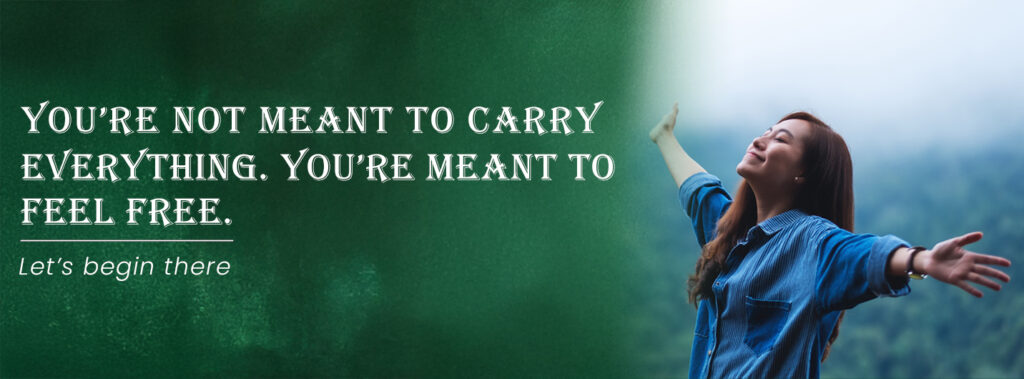Introduction
In a world that constantly demands more, it’s easy to believe that you must hold everything together—responsibilities, emotions, roles, expectations. But the truth is, not everything you carry belongs to you. The pressure to be everything for everyone can leave you feeling heavy, disconnected, and overwhelmed. Freedom begins when you choose to release what was never yours to carry.
The Invisible Load
Many of us carry invisible burdens. We smile when we’re exhausted. We say yes when we want to say no. We silence our own needs to meet the needs of others. Over time, this emotional labor becomes weighty, manifesting as burnout, resentment, or numbness.
You might be the reliable one, the caretaker, the fixer. And while these roles once served a purpose, they can become cages if left unexamined.
When Strength Becomes a Mask
There’s a kind of strength that’s celebrated: doing it all without complaint. But behind that mask, many are silently struggling. True strength isn’t about pretending everything is fine. It’s about having the courage to admit when it’s not.
It’s about honoring your capacity—not pushing past it every day.
Identifying What’s Not Yours
Not everything you carry belongs to you. Some of it was inherited—family expectations, cultural norms, outdated beliefs. Some of it was absorbed—through relationships, workplaces, and unspoken pressures.
To begin releasing, ask yourself:
– What emotions am I holding that aren’t truly mine?
– What roles drain me instead of energize me?
– Who or what am I trying to prove myself to?
– Where have I abandoned my needs for approval?
Freedom Through Boundaries
Freedom isn’t found in doing more—it’s in doing what aligns. Boundaries are how we protect our energy, our time, and our truth.
You are allowed to:
· Say no without explanation
· Leave conversations that hurt your spirit
· Choose rest over productivity
· Be your own priority without guilt
Letting Go is an Act of Self-Trust
Letting go doesn’t mean failure. It means trusting that your worth isn’t tied to how much you carry or achieve. It means believing you deserve peace. When you choose to let go, you choose yourself. You say, ‘I am enough, even when I’m not everything for everyone.’
Coming Home to Yourself
When you stop carrying what’s not yours, you start reclaiming who you really are. You rediscover what brings you peace. You make decisions from intuition, not obligation. You start breathing easier, standing taller, living fuller.
Conclusion: Begin Again With Lightness
You were never meant to carry it all. You are meant to feel free. Begin there.
Let this be your reminder: release is not weakness. It’s wisdom. You don’t need permission to unburden yourself. You need only the courage to begin. Not everything belongs to you. And that’s okay. Let go. Breathe. Be.
FAQs: Letting Go and Feeling Free
1. Is it selfish to stop carrying other people’s emotions?
No, it’s not selfish—it’s necessary. You can care for others while also protecting your own mental and emotional health. You are not responsible for everyone else’s happiness.
2. How do I set boundaries without feeling guilty?
Start small and remind yourself that boundaries are a form of self-respect. Guilt often arises from conditioning, not wrongdoing. Over time, setting boundaries will feel more empowering than shameful.
3. What if people don’t understand my decision to let go?
Some may not understand, especially if they benefited from your overextending. But your healing isn’t up for debate. Those who respect your growth will adjust; others may fall away—and that’s part of the process.
4. Can I still be strong if I ask for help or take a step back?
Absolutely. Strength is not about enduring everything alone. It’s about knowing your limits and honoring them. Asking for help is a sign of courage, not weakness.
5. How do I know if I’m carrying something that’s not mine?
Pay attention to your body and emotions. If something feels draining, heavy, or misaligned, it might not be yours to hold. Self-reflection and journaling can help bring clarity.

